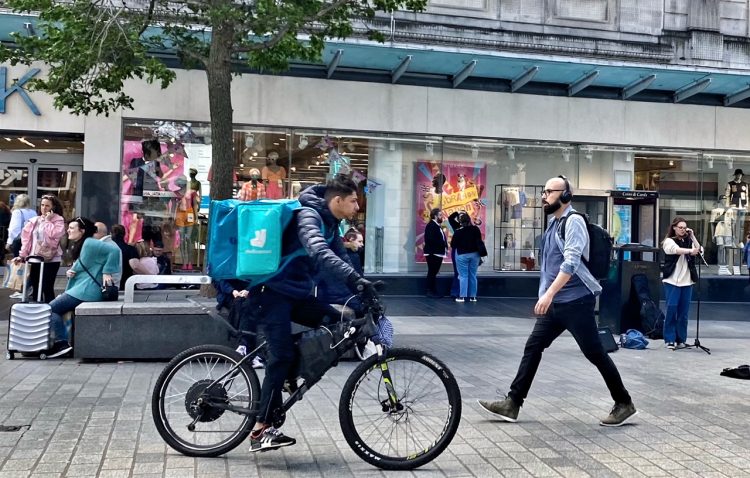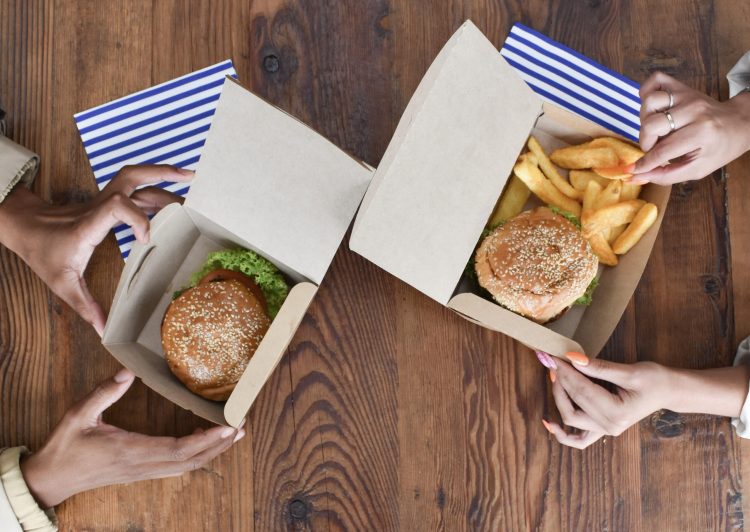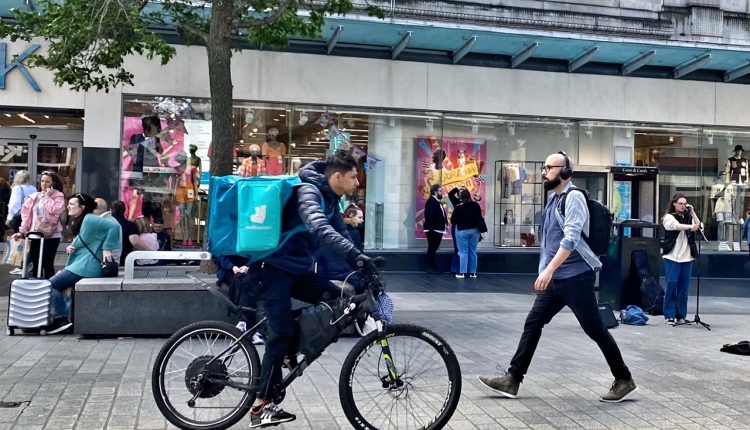Liverpool food delivery app venture admits defeat
In 2021 digital entrepreneur Leon Rossiter secured £700,000 backing from the Combined Authority for his Liverpool food delivery business – however a new report reveals the venture has failed. Tony McDonough reports

Liverpool entrepreneur Leon Rossiter has admitted defeat in his attempt to pioneer a local delivery app to rival established giants such as Deliveroo and Just Eat.
Peepl was launched in 2018 with the aim of keeping money flowing around the local economy. The big delivery brands were taking up to 37.5% commission from local restaurants and takeaways on each meal sold and delivered.
Peepl aimed to disrupt this model, pledging to take commission of between just 5% and 10%. In November 2021 Leon persuaded Liverpool Metro Mayor Steve Rotheram and the Combined Authority (CA) to back the venture to the tune of £700,000.
However, two years on the dream appears to be dead. Leon has admitted to Liverpool online publication The Post that he is in the process of filing for insolvency. Although the CA never paid out the full £700,000, city region taxpayers are still £433,000 out of pocket.
During the pandemic restaurants and takeaways were closed or restricted for long periods. Deliveroo reported a surge in orders during COVID. In one six-month period it took 149m orders – more than double the number for the same period in the previous year.
For local businesses it proved to be the best way to keep on trading. But the commissions they were paying were eye-watering. This convinced Steve Rotheram of the potential of the Peepl model.
Speaking at the time of the investment, Mr Rotheram said: “We believe it will help to foster much more fairness to an industry that, for too long, has been dominated by certain operators with a poor track record for not treating restaurants or staff particularly well.”
In 2022 Leon told LBN: “Entities such as Deliveroo, Amazon and Uber are all extracting money out of local economies. We are here to try to counteract some of that leakage.”
Thanks to the CA’s backing Peepl was able to grow its staff to more than 10 people. Leon aimed to create a network of Peepl apps moving into other areas of retail. It pioneered a localised currency called ‘Peepl Tokens’ to flow between sellers and buyers in the network.
It was supported by Fuse, a blockchain network, for quick and cheap transactions. The tokens could only be spent within the network, which kept the money circulating within the city region economy.
Peepl also partnered with an established Manchester delivery network Shocal. However, The Post revealed on Thursday that the venture had failed to gain the necessary traction. In all it had processed just 58 orders.
In an interview with The Post, Leon said the collapse of Bahamas-based crypto exchange FTX, which caused the value of Bitcoin and other cryptocurrencies to plummet, severely affected Peepl’s ability to raise more investment because of its own blockchain model.
“As soon as it happened the money disappeared,” he said. “If the bottom hadn’t fallen out of the crypto market there was enough traction for us to raise funding.
“But the investors we were speaking to weren’t interested because (of FTX) and how much people got burned.”

Leon says he worked without pay between January and July this year in an attempt to save the venture but his efforts were in vain. He added: “I tried everything to sustain the company because I still believed in the vision.”
He remains optimistic that the Peepl model is a viable one adding that he and members of his team one day hope to resurrect the idea.
This will also raise questions about the wisdom of the Combined Authority committing such a significant sum of taxpayers money to what was always a risky digital venture. It was essentially playing the role of a venture capitalist.
Of the £700,000 originally pledged, £500,000 was earmarked for Peepl’s running costs. The other £200,000 was to be used for marketing and to fund incentives for local businesses to sign up to the app.
That £200,000 was ultimately never released by the CA although it did plough 433,000 into Peepl. This included a loan of £352,000 from the Strategic Investment Fund. The CA told The Post it was taking “appropriate steps” to protect its position while Peepl files for insolvency.
In a statement the CA added: “Through its role overseeing Liverpool city region’s economic success, the Combined Authority invests in businesses and projects that meet our strategic priorities and the potential to generate returns that can be reinvested into the local economy.
READ MORE: Retailer B&M reveals huge store expansion drive
“The (Peepl investment) was during the height of the pandemic, when home delivery services experienced a boom, and nobody was clear when this ‘new normal’ was set to end.
“Our investment panel decided that this investment was a risk worth taking. During the pandemic, we distributed more than £50m of support to the local economy, with a further £150m COVID Recovery Fund launched by the mayor upon his re-election.
“The lifting of lockdown meant that £600,000 previously allocated to the project was taken from the Additional Restrictions Grant provided by the Government.”

